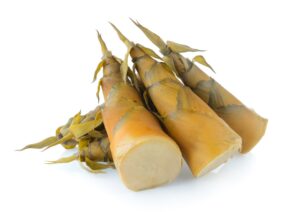In a world where fast-paced and industrialized food production has become the norm, it can be refreshing to discover a company like Heraclea that prioritizes authenticity, sustainability, and ethical practices. From their family-owned and operated grove in Turkey, Heraclea produces high-quality olive oil that is 100% made in Turkey and cultivated with respect for both people and the planet.
At Heraclea, the focus is on doing less to care more. The company believes in allowing nature to run its course and using traditional methods that promote healthy soil and protect the abundance of the land. The result is an olive oil that is never artificial, overprocessed, or fraudulent.
Heraclea’s products are made with the following values in mind:
- Ethical: The company is committed to supporting its community and culture by paying a fair wage and assessing the social and economic impacts of its presence and production.
- Sustainable: Heraclea’s grove is part of the family, and they are its custodians and protectors. The company is committed to never using any agro-chemicals, including synthetic fertilizers or pesticides, reducing the risk of pollution and contamination, both today and in the future.
- Authentic: From the grove until it reaches your table, Heraclea oversees every part of olive oil production. They believe in minimal interference with nature, so they don’t add any stabilizers, chemicals, or additives to their oil.
The company’s products include two types of olive oil, Early Harvest and Mature Harvest, each with distinct flavor profiles that complement a variety of dishes. They also offer gift boxes and sets, including a Turkish Cookbook that features over 550 distinct Turkish recipes.
Beyond their commitment to producing quality products, Heraclea is also dedicated to sharing their way of life with others. In Turkish culture, all guests, particularly unexpected ones, are seen as blessings. Therefore, Heraclea’s door is always open, and they welcome everyone to join them around the table for a meal filled with family, friends, laughter, and of course, loads of olive oil.
Final Thoughts
Heraclea is a company that stands for authenticity, sustainability, and ethical practices. Their commitment to doing less to care more is reflected in the quality of their olive oil, and their dedication to sharing their way of life with others is truly inspiring. By choosing Heraclea, you can feel good about supporting a company committed to producing a product that is good for you and the planet.
Related Topic:
Olive Oil Production: Balancing Sustainability and Health Impacts for People and the Planet
The olive oil industry is a major contributor to the global economy, providing employment for millions of people and generating billions of dollars in revenue each year. However, the industry also has a complex impact on the environment and human health, and its effects depend on a variety of factors, such as the scale of production, farming practices, and consumer demand.
Economic Impact
The olive oil industry significantly contributes to the agricultural sector in many countries, particularly in the Mediterranean region. In addition to employing millions of people, olive oil exports generate billions of dollars annually. The industry also supports related industries such as packaging, transportation, and marketing.
Despite its economic importance, the olive oil industry faces price volatility and market pressures, particularly for small-scale producers. Additionally, the industry’s economic impact is often concentrated in certain regions, which can lead to issues such as land use change and monoculture farming practices.
Environmental Impact
The environmental impact of olive oil production can be significant, particularly when unsustainable practices are used. For example, the expansion of olive groves can lead to deforestation and the destruction of natural habitats, harming biodiversity and disrupting ecosystems.
Intensive farming practices, including synthetic fertilizers and pesticides, can degrade soil quality, decreasing productivity and increasing erosion. Olive oil production also requires large amounts of water, and in regions where water is scarce, the overuse of water for agriculture can exacerbate water scarcity and impact aquatic ecosystems. In addition, the processing of olives into oil can produce large amounts of waste, including wastewater and solid waste, which can pollute water resources and contribute to greenhouse gas emissions.
However, sustainable farming practices can help reduce the environmental impact of olive oil production. For example, organic farming methods can help reduce the need for synthetic inputs, improve soil quality, and promote biodiversity. Sustainable farming practices can also help reduce water usage through drip irrigation and soil moisture sensors. Additionally, renewable energy sources such as solar power can reduce greenhouse gas emissions from farming and processing operations.
Health Impact
Consuming olive oil has various health benefits, including reduced risk of heart disease, stroke, and certain cancers. However, the use of synthetic pesticides and fertilizers in olive oil production can have negative health impacts on consumers and workers. Pesticide residues can enter the food chain and accumulate in human tissues over time, leading to long-term health effects. In addition, synthetic chemicals can contribute to water pollution and soil degradation, which can impact human health through the food and water supply.
Some producers use organic farming methods and avoid synthetic chemicals to promote healthy and sustainable practices in the olive oil industry. Additionally, some olive oil products are certified organic or labeled as “pesticide-free” or “chemical-free,” which can help consumers identify products that are produced using sustainable and health-promoting methods.
Solutions for Sustainability and Health
Several solutions for promoting sustainability and health in the olive oil industry exist. These include using sustainable farming practices, conserving water resources, using renewable energy, supporting fair trade and ethical sourcing, and seeking out organic and pesticide-free olive oil products.
Sustainable farming practices such as organic farming, intercropping, and crop rotation can help reduce the environmental impact of olive oil production and promote long-term soil health and ecosystem stability. Water conservation techniques such as drip irrigation, soil moisture sensors, and wastewater recycling can help reduce water usage and minimize the impact of water scarcity on local ecosystems.
Renewable energy sources such as solar power can reduce greenhouse gas emissions from farming and processing operations. Additionally, supporting fair trade and ethical sourcing can promote more equitable and sustainable practices in the olive oil industry. Fairtrade certification can help ensure that workers are paid fair wages and have safe working conditions, while ethical sourcing practices can promote transparency and accountability in the supply chain.
Consumers can also play a role in promoting sustainability and health in the olive oil industry. By seeking out organic and pesticide-free products, supporting fair trade and ethical sourcing, and choosing products produced using sustainable farming practices, consumers can help create demand for more sustainable and healthy products.
Final Thoughts
The olive oil industry has a complex impact on people and the planet, and its effects depend on various factors, such as farming practices and consumer demand. However, by promoting sustainable and healthy practices in the industry, we can help mitigate its negative impacts and create a more equitable and sustainable industry for farmers, workers, and consumers.
There are several solutions for promoting sustainability and health in the olive oil industry, from using sustainable farming practices and conserving water resources to supporting fair trade and ethical sourcing. By working together, we can create a more sustainable and equitable industry that promotes the health of people and the planet.










Reader Interactions